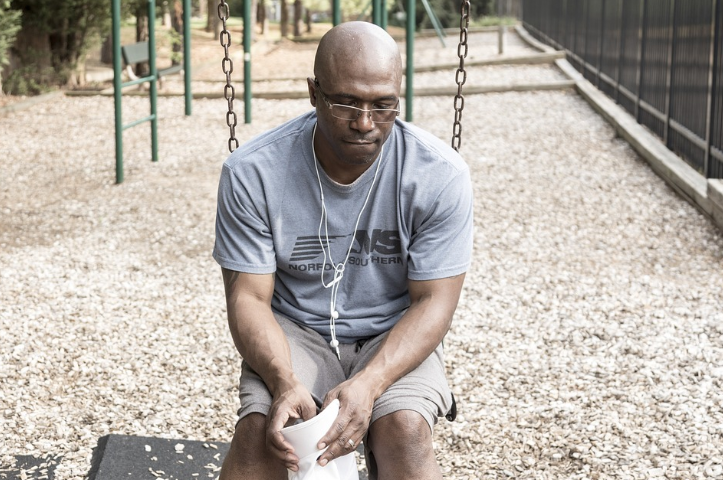First, congratulations on taking this important step towards a healthier and happier future. Rehabs In Cape Town do really help, don’t they? We understand that maintaining sobriety can be challenging, but fear not – we’ve got you covered with some valuable tips to help you navigate through this journey.
Find Your Tribe

Finding your tribe that always sparks a positive vibe is what you want to do right away. Try surrounding yourself with like-minded individuals who understand and support your journey toward recovery. Sure, they can be people you meet in your local support group. However, it’s not a bad idea to try reaching out to friends or family members who may have also experienced addiction or are supportive of your decision to stay clean. Having people in your life who can relate to what you’re going through and offer encouragement can make all the difference during challenging times. Remember, finding your tribe isn’t just about having someone there for you when things get tough – it’s also about building meaningful connections based on shared interests outside of addiction.
Keep Busy With New Hobbies
Not only does doing this give you something positive to focus on, but it also helps fill the vast void that substance abuse may have left behind. One great way to keep busy is by trying out different physical activities or sports. Whether it’s going for regular runs, taking up yoga, or joining a local soccer league, getting physically and mentally active can help boost your mood and overall well-being. Another hobby worth exploring is creative expression through art or music. Channeling your emotions and experiences into paintings, drawings, or even writing songs can be incredibly therapeutic and empowering. If you’re more of an introvert, why not dive into the world of books?
Stay in the Loop With Support Groups
Attending support group meetings regularly will help you stay connected to the recovery community and remind you that you are not alone in your journey. Hearing others’ stories of triumph over addiction can keep inspiring and motivating you so that you won’t stop pushing forward. In addition to emotional support, support groups also offer practical advice and guidance on navigating life after rehab. Members often share resources, coping strategies, and relapse prevention techniques that have worked for them. This wealth of knowledge can be extremely helpful as you navigate the ups and downs of early recovery.
Try Mindfulness and Meditation

Many scientists believe that these practices help cultivate a sense of inner calm, grounding, and self-awareness. By learning to focus on the present moment without judgment or attachment, individuals can better manage stress, cravings, and triggers that may arise. Incorporating mindfulness into daily life doesn’t have to be complicated. It can start with something as simple as taking a few minutes each day to sit quietly and observe your breath or surroundings. This practice allows you to become more attuned to your thoughts and emotions without becoming overwhelmed by them. Meditation goes hand in hand with mindfulness and offers an opportunity for deeper introspection. Sitting in stillness and quieting the mind allows space for reflection, healing, and personal growth. It helps create distance from negative thought patterns that may lead back down the path of addiction.
Staying clean and sober after rehab is a lifelong journey, but with the right strategies and support systems in place, it can become more manageable. Remember, recovery is not a destination; it’s a continuous process of growth and self-discovery.…




 Moving on to the next treatment, these therapies’ ultimate goal is to help people with SUD identify and change unhealthy thought patterns, healthy beliefs, and behaviors that contribute to their addiction. In cognitive therapy, individuals work with a therapist to explore the underlying thoughts and beliefs that drive their addictive behavior. Challenging these adverse thoughts and replacing them with more positive ones, the patients can cultivate healthier coping mechanisms and cut off the risk of relapse.
Moving on to the next treatment, these therapies’ ultimate goal is to help people with SUD identify and change unhealthy thought patterns, healthy beliefs, and behaviors that contribute to their addiction. In cognitive therapy, individuals work with a therapist to explore the underlying thoughts and beliefs that drive their addictive behavior. Challenging these adverse thoughts and replacing them with more positive ones, the patients can cultivate healthier coping mechanisms and cut off the risk of relapse.


 Now this is the key ingredient to any weight loss supplement. This powerful compound offers numerous benefits when shedding those extra pounds. So, what exactly is soluble fiber? It’s a type of dietary fiber that dissolves in water, transforming itself into a gel-like substance in your digestive tract. This gel reduces the absorption of nutrients and helps you feel fuller for longer periods of time. Not only does soluble fiber help control hunger cravings and reduce calorie intake, but it’s also crucial in regulating blood sugar levels. In fact, soluble fiber is also known for promoting healthy bowel movements by bulking up stool and preventing constipation.
Now this is the key ingredient to any weight loss supplement. This powerful compound offers numerous benefits when shedding those extra pounds. So, what exactly is soluble fiber? It’s a type of dietary fiber that dissolves in water, transforming itself into a gel-like substance in your digestive tract. This gel reduces the absorption of nutrients and helps you feel fuller for longer periods of time. Not only does soluble fiber help control hunger cravings and reduce calorie intake, but it’s also crucial in regulating blood sugar levels. In fact, soluble fiber is also known for promoting healthy bowel movements by bulking up stool and preventing constipation.


 Alcohol and drug use are often used as a way to self-medicate, and they can be a sign that you are struggling with deeper depression issues. At times,
Alcohol and drug use are often used as a way to self-medicate, and they can be a sign that you are struggling with deeper depression issues. At times,  If you are struggling with depression, it can be hard to make it through the day. You may find yourself struggling to get out of bed in the morning, unable to focus on tasks at work, or feeling exhausted after simple activities. If you have difficulty functioning in your everyday life due to depression, it may be time to seek help.
If you are struggling with depression, it can be hard to make it through the day. You may find yourself struggling to get out of bed in the morning, unable to focus on tasks at work, or feeling exhausted after simple activities. If you have difficulty functioning in your everyday life due to depression, it may be time to seek help.